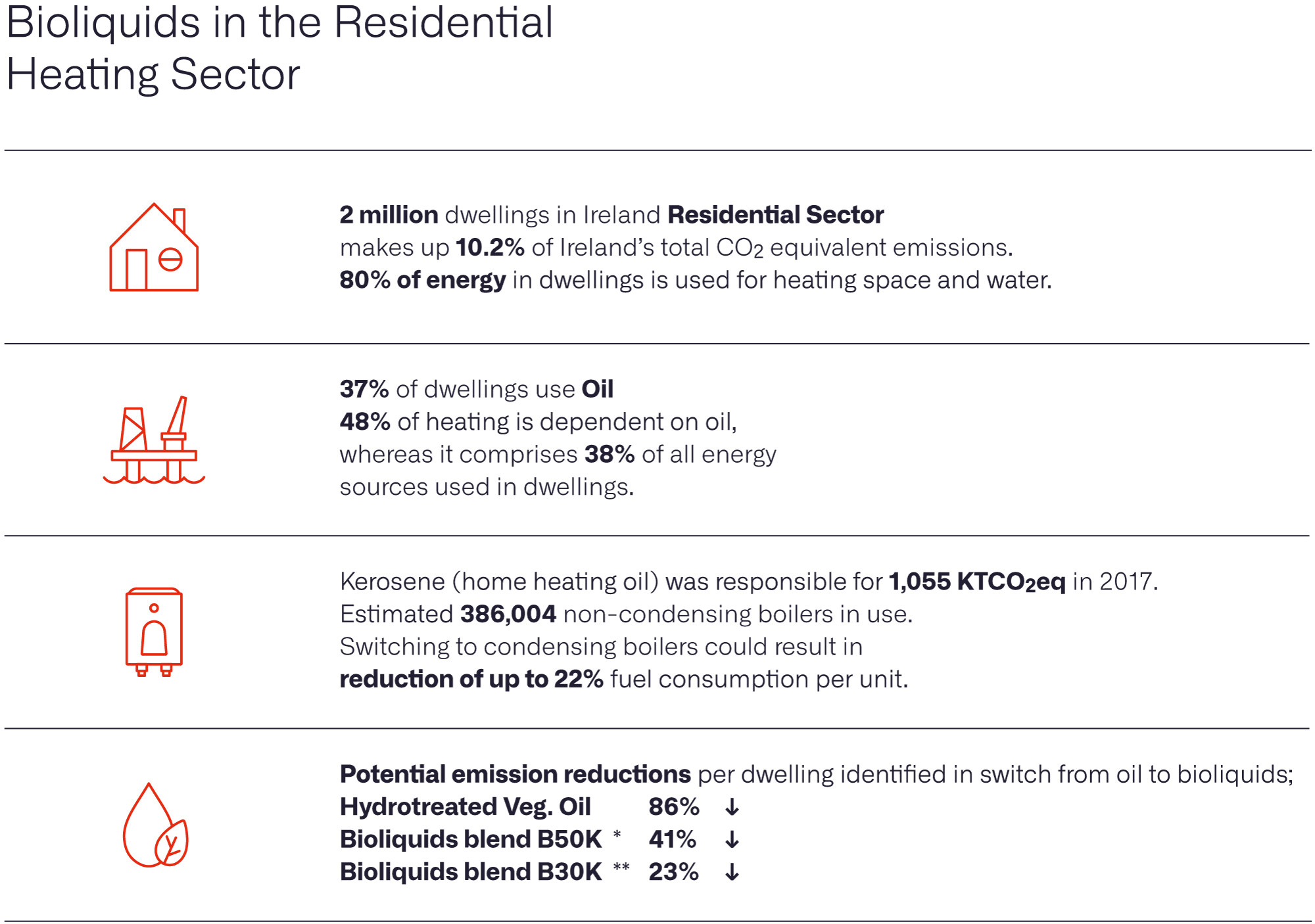As part of this work, we are proactively engaging with the Government and other stakeholders to outline how we can achieve dramatic emissions reductions without jeopardising the needs of the 37% of Irish households who depend on liquid fuel to heat their homes.
AECOM Report Summary
This report titled ‘A Review of the Irish Residential Heating Sector: The Impact of Bioliquids and other Emissions Reduction Measures’ was commissioned by the founding members of the Alliance for Zero Carbon Heating, and carried out by the leading infrastructure consulting firm, AECOM. In recent years, Government policy has focused heavily on electrified heat as the solution to decarbonisation - with mixed results.
Slow progress in meeting ambitious targets for the retrofitting of existing 500,000 homes by 2030 has meant that the home heating sector has fallen behind. Given the high cost of ‘deep retrofitting’ existing homes - the average cost of this runs to €56,000 - it is increasingly unlikely that the retrofitting goals set out in the Climate Action Plan will be achieved, which will slow Ireland’s overall progress towards carbon neutrality. There are, however, other options available for reducing emissions, a fact which this report’s findings made clear.
The report identifies that the use of bioliquid blends (such as B50K and B30K) in existing kerosene- based home heating systems is a viable transition away from a complete reliance on kerosene oil and offers significant carbon savings in a short time frame. Its analysis found that a 50% bioliquid/kerosene blend would be optimal for the transition. It also found that massive emissions reductions of up to 86% could be achieved by using Hydrotreated Vegetable Oil for home heating.
Crucially, switching to these alternatives would not impose massive costs on households. The household capital and running costs of switching to the use of B30K or B50K are far less than the household capital and running costs of switching to an air source heat pump, for example. Furthermore, when looking at the additional costs faced by each household in switching from an oil- based heating system, switching to the B30K and B50K bioliquid blends costs far less than switching to a heat pump. Examined on an overall basis, the authors found that the least cost option on a societal level is to switch to B50K.
By rolling out these alternative fuels in the coming years, we can allow hundreds of thousands of Irish households to make a massive contribution to achieving carbon neutrality. In order to do this, however, the Government has to put in place a properly targeted taxation and regulatory framework to encourage the widespread adoption of advanced biofuels and other sustainable fuels.


